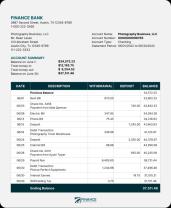What are the benefits of an implementation plan?
An implementation plan is a structured approach that outlines the steps, resources, and timeline required to achieve a specific goal or project. It serves as a roadmap for successful execution and offers several advantages that contribute to effective project management and organizational success. Let's explore the key advantages of having an implementation plan:
1. Clarity and Direction
An implementation plan provides clear direction by outlining the sequence of tasks and activities needed to achieve the desired outcome. It helps team members understand their roles, responsibilities, and the overall project scope.
2. Goal Alignment
By defining objectives and milestones, an implementation plan ensures that everyone is aligned with the project's goals. It helps keep the team focused on the primary objectives and minimizes the risk of straying off course.
3. Resource Allocation
An implementation plan identifies the necessary resources, including personnel, budget, and equipment. This allows for efficient allocation of resources, reducing the chances of overallocation or underutilization.
4. Risk Management
Effective risk assessment and mitigation strategies are integral to an implementation plan. It helps anticipate potential challenges, allowing teams to proactively address issues and minimize disruptions.
5. Timeline and Milestones
Having a timeline with well-defined milestones helps track progress and measure achievements. It provides a sense of accomplishment as milestones are reached, boosting team morale and motivation.
6. Communication and Collaboration
An implementation plan fosters communication and collaboration among team members and stakeholders. It establishes a common understanding of project expectations and facilitates regular updates and feedback.
7. Performance Measurement
With predefined metrics and indicators, an implementation plan allows for objective performance measurement. It enables the assessment of whether the project is meeting its goals and provides insights for continuous improvement.
8. Accountability
Assigning specific tasks and responsibilities in the implementation plan enhances accountability. Team members know what is expected of them and are more likely to take ownership of their roles.
9. Flexibility and Adaptability
An implementation plan is not rigid; it allows for adjustments and adaptations based on changing circumstances. This flexibility ensures that the project remains relevant and responsive to evolving needs.
10. Successful Project Completion
Ultimately, an implementation plan increases the likelihood of successful project completion. By providing a structured approach and addressing potential challenges, it paves the way for achieving desired outcomes on time and within budget.
Conclusion
An implementation plan is a valuable tool that offers a range of advantages for effective project execution. From providing clarity and direction to enhancing communication and facilitating performance measurement, an implementation plan is a fundamental component of successful project management and organizational growth.












